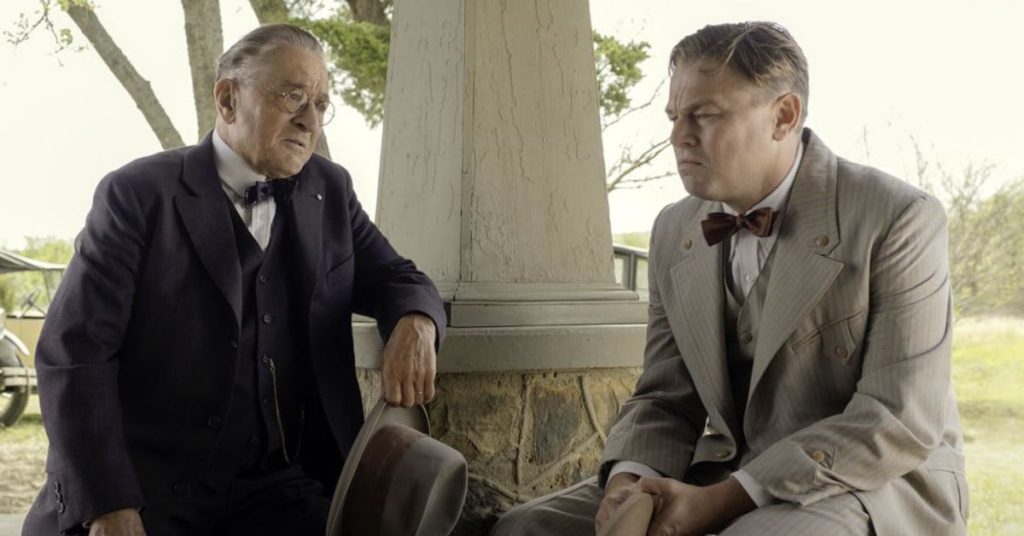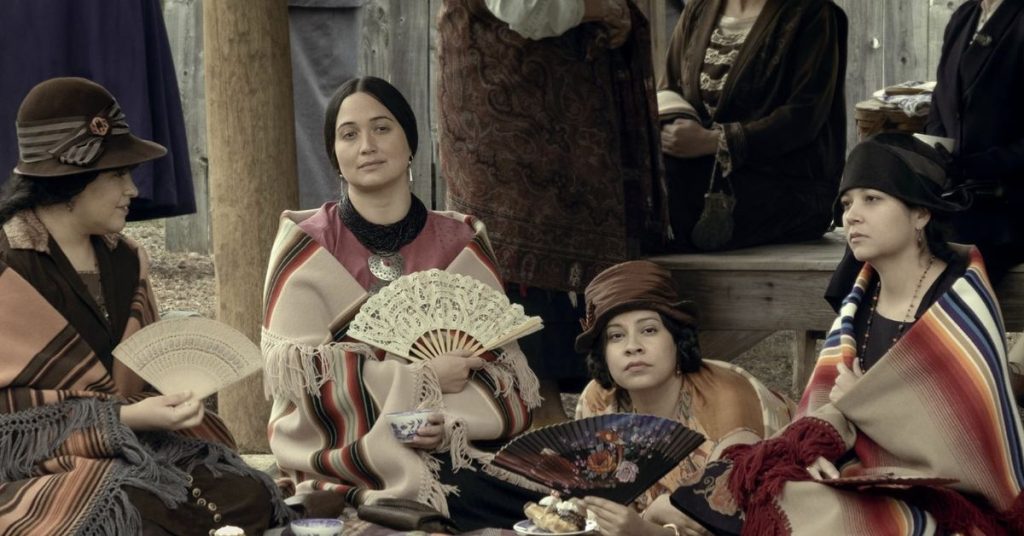By: Russ Matthews
The discussion of First Nations continues to be a talking point for many nations worldwide.
The challenges of Native Americans have been the subject of cinematic releases since the medium’s invention. Yet, their mistreatment has become more prevalent over recent decades, and the dramatic realities of their history continue to make compelling storytelling for filmmakers.
Killers of the Flower Moon was written by David Grann in 2017 and found its way into the hands of legendary director, Martin Scorsese. As he read through the accounts of investigative work behind murders that had occurred within the Osage nation in Oklahoma in the 1920s, the award-winning director determined he needed to make this into a film. Academy Award-winning screenwriter Eric Roth’s work focuses on the relationships of Ernest (Leonardo DiCaprio) and Mollie Burkhart (Lily Gladstone) as they navigated familial and racial difficulties that involved many deaths within their community. Due to the vast wealth of the Native American tribe, who benefited from the large oil deposits found on their reservation lands, tensions developed between the Osage and a consortium led by Ernest’s uncle, William King Hale (Robert De Niro). Eventually, the Federal Bureau of Investigation begins to look into the murders, which leads to more deaths and Mollie’s family being in danger.
Great filmmakers develop their own formula for success. Martin Scorsese once again proves that he can bring together extraordinary talent in front of and behind the camera. Killers of the Flower Moon is his sixth with Leonardo DiCaprio and tenth with Robert DeNiro, where he manages to consistently get great performances out of these actors. Yet, their roles only work within the outstanding characters played by Lily Gladstone and the extended list of Osage Nation representatives. This mix of tribal figures and the parasitic hangers-on created a rich environment of corruption and drama. It is a perfect atmosphere for a Scorsese project that desires to unearth the vicious underbelly of society while showing the beauty that can exist on the surface of humanity. 
Granted, this movie is quintessential for this senior statesman of the industry. Still, it does show that success can breed unsuspecting hubris, specifically in the bloated run time that was difficult to justify when there were apparent scenes that could have been cut to make this a tighter and more accessible option for audiences. Similar to the excessive length of The Irishman, one person that Scrosese could have invested in would have been an editor who would have the courage to stand up to the director to make an exceptional film into a masterpiece. Still, the Academy Award-winning director proves that even his good films are outstanding compared to all that is offered in theatres. Killers of the Flower Moon will be right there with Oppenheimer during awards season and should garner attention for the cast and crew of this stunning film.
REEL DIALOGUE: A house divided
And if a house is divided against itself, that house will not be able to stand. – Jesus (Mark 3:25)
Internal division is usually the downfall regarding countries, businesses, families, and even a league of assassins. The true enemy of the Osage community becomes a battle within their ranks, specifically within their homes.
Whether in personal relationships, in the workplace atmosphere, or with a connection with God, it is critical to consider what is causing the division in all of these relationships and rectify them before it moves beyond repair.
What else does the Bible have to say about division? (Mark 3:24-26, 1 Corinthians 1:10-13)

Article supplied with thanks to City Bible Forum.
Main image: Lily Gladstone and Martin Scorcese in a scene from the movie. (All images: Movie stills)
About the author: Russ Matthews is a film critic at City Bible Forum and Reel Dialogue. He has a passion for film and sparking spiritual conversations.
